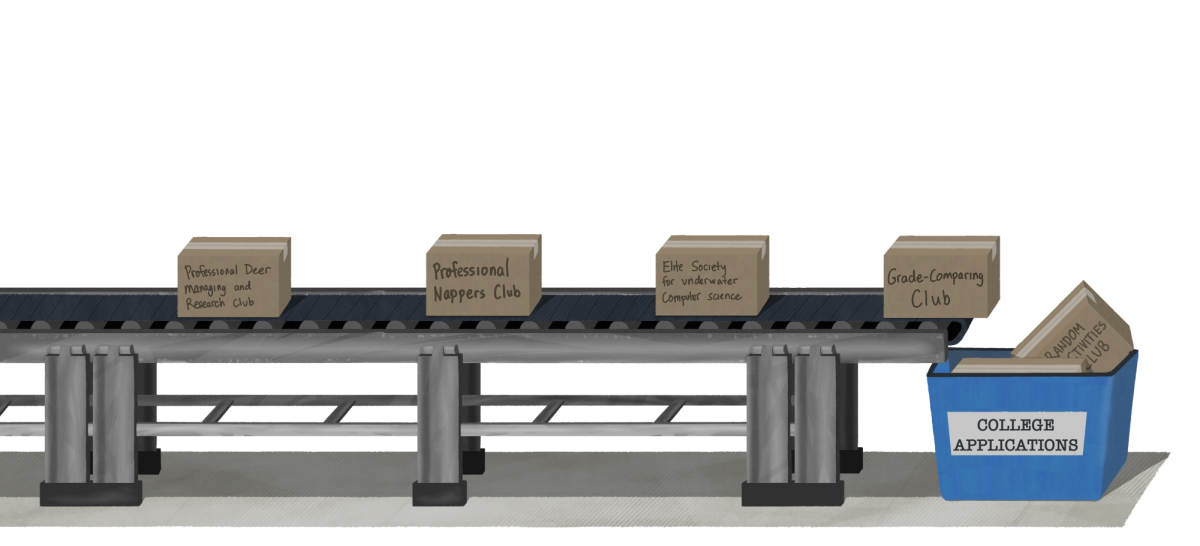Zoe Leontis is vice president of the Title IX Club.
“If you’re still struggling with consent, just imagine instead of initiating sex, you’re making them a cup of tea.”
This sentence starts the popular consent-education video “Tea and Consent.” The video, which was used in PAUSD student consent education in 2021, likens consent to the acceptance or refusal of a cup of tea. While this metaphor may be clever, it fails to identify the major factors of consent—that it must be freely given, reversible, informed, specific and enthusiastic. More importantly, it masks the severity of sexual harassment, sexual assault and rape. Although PAUSD and Gunn have the resources, they fail to provide students with proper, consistent education on consent.
The PAUSD Policy and Regulations book states that consent is not silence or passivity. “Consent is communicating permission,” it reads. “It is voluntary approval that can be withdrawn at any time without coercion.” Even if someone shows initial interest, they can change their mind at any point, and it is crucial to ask before doing anything that could make someone uncomfortable. Moreover, consent one time does not mean consent every time. Additionally, even if minors are willing to have sex, they cannot legally give consent.
Sexual harassment involves repeated requests to engage in physical conduct such as dancing, kissing, touching or sex. Additionally, sexual harassment includes negative comments directed at a person’s sex, gender identity or sexuality, such as body shaming. Sexual assault includes nonconsensual touching of any nature, such as grabbing, groping, grinding, fondling, kissing or sex. Since consent isn’t covered well enough throughout the year, students often do not realize that they have been sexually assaulted or harassed. Even if they do know, they sometimes aren’t sure how to file a report of a Title IX violation or find support from administrators.
The district’s educational programs fail to impart this information and address these nuances. Last year, the district did not provide any education on consent. The Title IX Club and Support for Survivors Project provided the only consent education, a video about consent at Prom shown during SELF. The video defined consent, explained that sexual misconduct acts as an umbrella term that covers any inappropriate sexual act, including sexual harassment and assault, and detailed how to report sexual-harassment incidents and resources on campus. Rather than leave the onus on the Title IX Club to provide consent education, the district should be proactive in consistently providing resources before large school events.
PAUSD’s slow progress on implementing consent education further precludes necessary, proper consent education for students. Despite first meeting over a year ago, from Sept. 26, 2022, to March 23, the Consent Education district committee has failed to plan and implement consent education lessons. Instead, at the April 18 school-board meeting, the committee shared its key takeaways and recommendations as an information item, meaning no action was required. The district committee also failed to provide any actionable conclusions that would have allowed the Title IX Club to move forward with consent education in the 2023-24 school year.
In light of PAUSD’s inaction, Gunn should address this issue head on and come up with solutions as a community. For example, an Oct. 11 meeting between the Title IX Club co-presidents and Principal Wendy Stratton jumpstarted conversation about implementing outside consent-education curriculum and involving students in the Consent Education committee’s discussions. Beyond these growing conversations, SELF lessons — which currently contain no consent education, according to Assistant Principal Courtney Carlomagno — could teach consent through videos and realistic examples of different forms of sexual misconduct. It cannot be up to a small group of dedicated students to coordinate consent education, as in past years — it takes collective perseverance and action to truly create change.
PAUSD currently fails to consistently make resources and information accessible to students. If education is provided throughout the year, students will be much more likely to remember and act on this information. The district can also turn to curricula from national consent- education organizations to provide students with comprehensive, effective consent education. Equipped with this information, students will know how to file a report if incidents happen, leading to a stronger sense of safety on campus.























